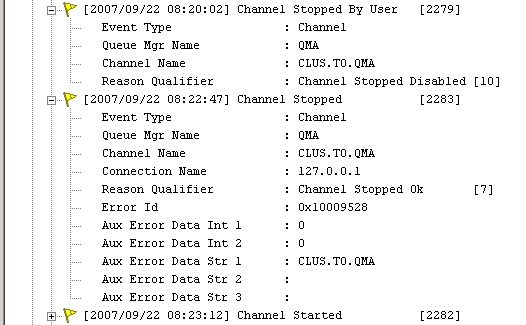After MTBF and MTTF, I came across a new related concept here.
Reading the emergency card
A kind-of followon to my earlier post about safety briefings. I just got off a flight where I was sitting next to a dead-heading pilot on her way to another job. Before takeoff she very carefully reviewed the safety card. That struck me as unusual – it’s one of those things I only expect first-timers to do.
Though I have to admit I can’t see those cards without thinking of Fight Club.
I’m not really that colour
I didn’t know this video had gone live, and found it by chance while looking for something else.
I think it was the first time I’d done anything long direct to camera, and that shows. And I’m not really that John Boehner/Dale Winton (trying to cover different country reference points) colour. But it was a fun thing to do one afternoon while we were writing the book last year. Hopefully the video release means that the final edited version of the redbook is closer too.
How simply can you describe MQ?
Came across this XKCD graphic, trying to describe the Apollo 5 rocket using just the most common 1000 words in English. Which has led to this page, allowing you to try to express an idea with the same limitations.
So I started to wonder about how to explain MQ, and quickly found that “message” is not in the permitted list. It could be made easier if there were a linked thesaurus, but that takes some of the fun away.
I did get as far as “conversation between computers can continue even when one not running”.
MQ Primer now finalised
The MQ Primer discussed here and here has completed its journey through the editing and production process, and is now available at http://www.redbooks.ibm.com/redpieces/abstracts/redp0021.html
Downloads are available in both PDF and EPUB format. You can also use calibre to convert to mobi format for Kindles.
Moving Hotels In Rio
For those of you in the Corporate world, using hotels from a predefined list is often a requirement. Mostly the rooms are average, nothing to excite anyone from the most timid traveler to the most adventurous. Bland and interchangeable, if IBM could figure out a way to house us in gray walled cubicles all the time they would. There have been many times I have had problems after changing cities and hotels, going back to the room I was in the week before, because I cannot tell them apart.
So when I made my travel arrangements for Brazil, the JW Marriot in Rio was sold out for 2 days of my trip. So I had to move. I had to pick from a very limited selection in Rio, in fact there was only one left on the IBM approved list at the IBM rate. Another Mercure, but I figured it would be much like those in Brasilia.
I was wrong.
Continue reading “Moving Hotels In Rio”
From the sublime to the not so much
A guest post from Lyn, who does even more MQ-related travel …
Traveling to exotic locations can be a rewarding experience. It can also be quite painful. In performing a WMQ for z/OS health checks (aka looking at SMF data until eyes are far too bloodshot) I have had the opportunity to go many lovely places. I would never have gone to Brazil, Malaysia, or Arkansas if I’d not been doing this.
Trouble in Rio continues…
Show, don’t tell. MS0P education on youtube.
I’ve just released a new version of SupportPac MS0P V7.1.0.2 containing a couple of new features. This package started out as my attempt to learn Java programming and it did one thing only, formatting MQ event messages into readable text from within the MQ Explorer.

Over the years it has grown into a collection of utilities, still mostly for the Explorer, but all aimed at making it easier to use MQ. Although the package contains documentation, we all know how much people read the books (at least it’s not an InfoCentre format). And so I decided to produce video demonstrations as an alternative.
Continue reading “Show, don’t tell. MS0P education on youtube.”
Bigger Brother draft redbook also now available
The first public draft of the full V7.1 and V7.5 redbook is now available. The (very) big brother of the new MQ primer has about 450 pages of information and scenarios. As a draft, again, it’s subject to change before final publication.
This book is completely new. It covers a mix of features on both distributed and z/OS platforms.
Draft MQ Primer available (for a short time)
In a previous post I wrote about getting the 1999 MQSeries Primer updated.
Now other people can get to see if it was worth it by going to http://www.redbooks.ibm.com/abstracts/redp4930.html http://www.redbooks.ibm.com/redpieces/abstracts/redp0021.html where they will find this short document.
Update: The draft has moved location – part of the process of giving it the same form-number as the predecessor redpiece. Annoying it happened during this draft process, but the draft address has always been temporary anyway,
